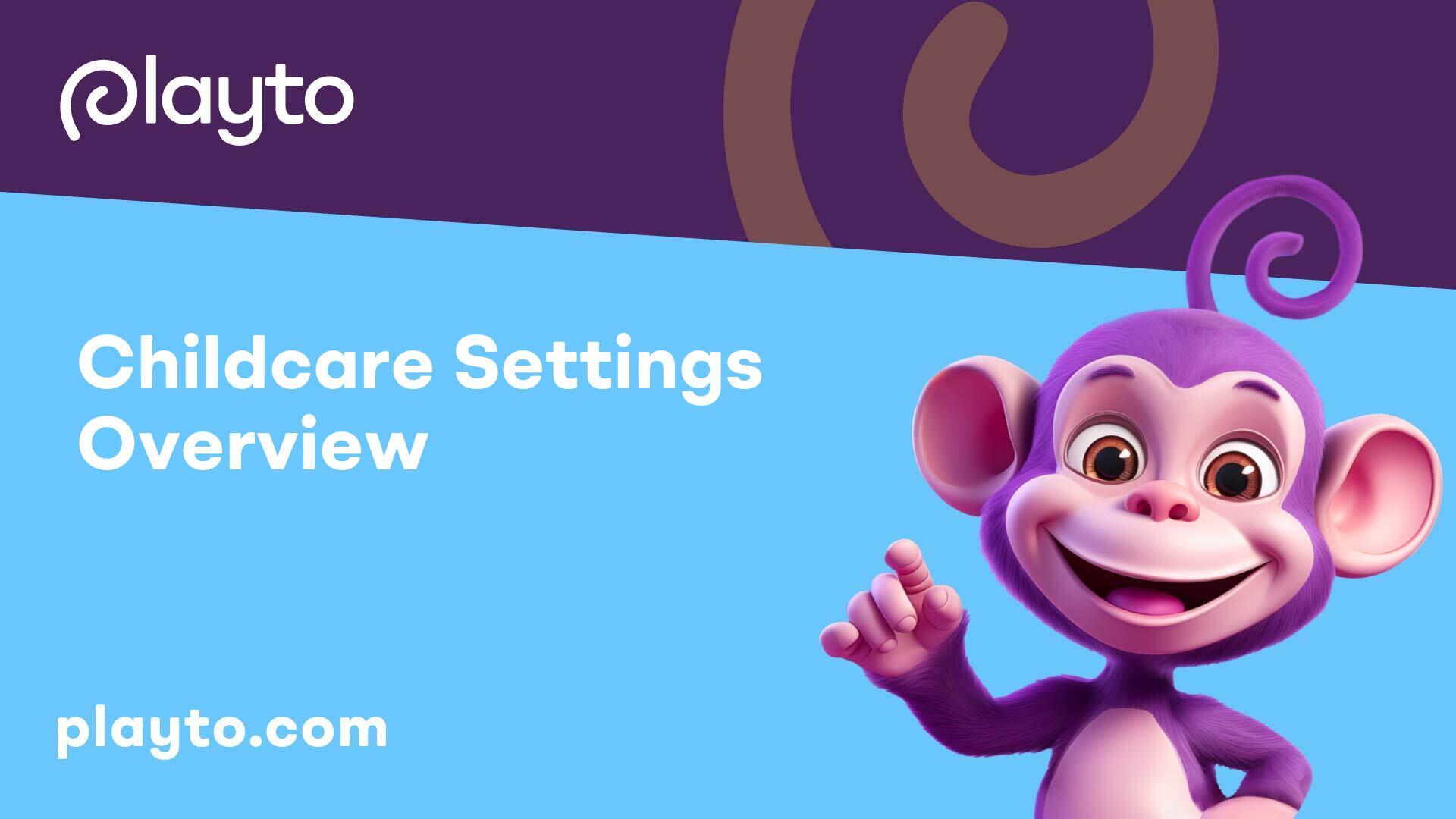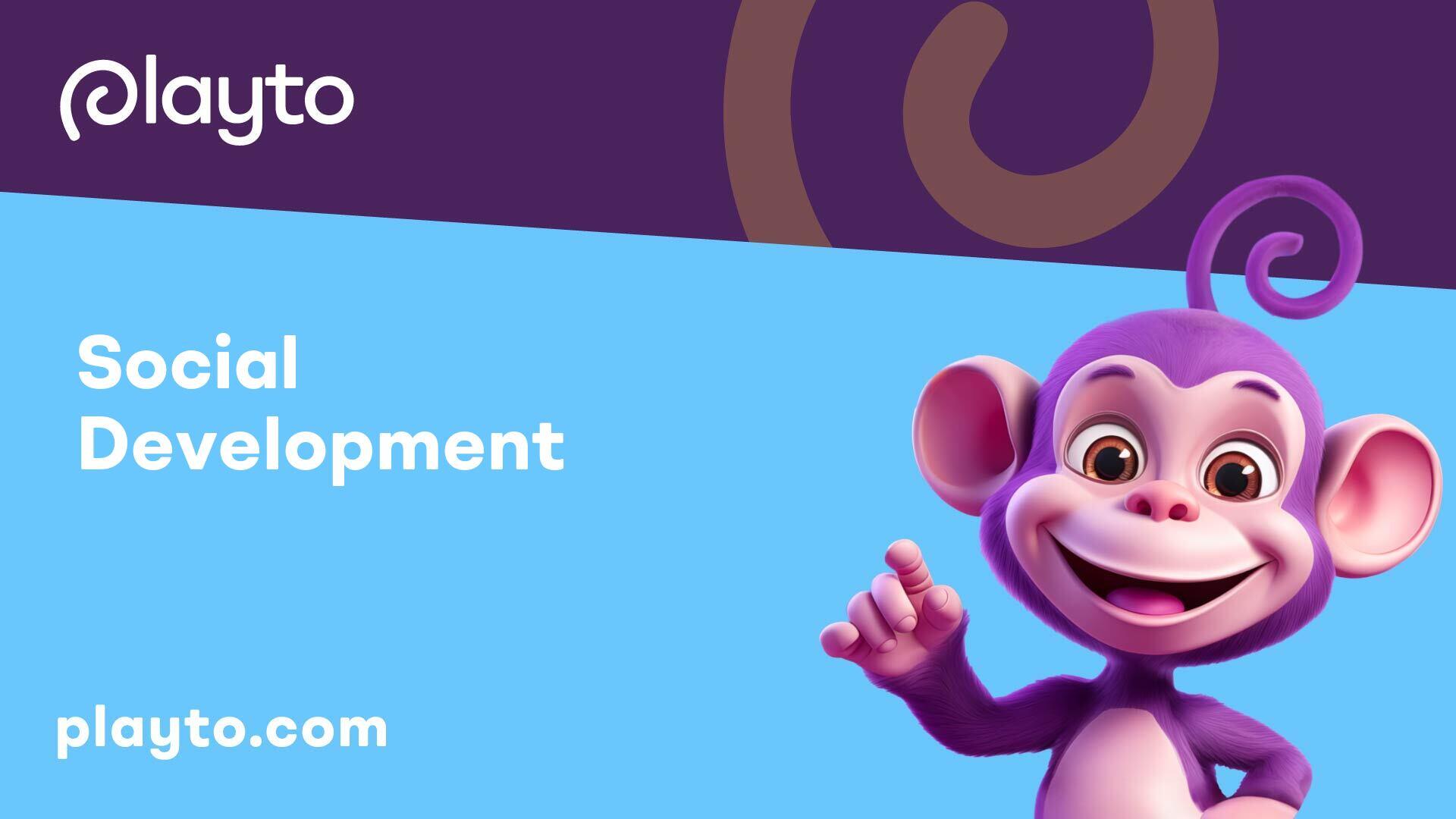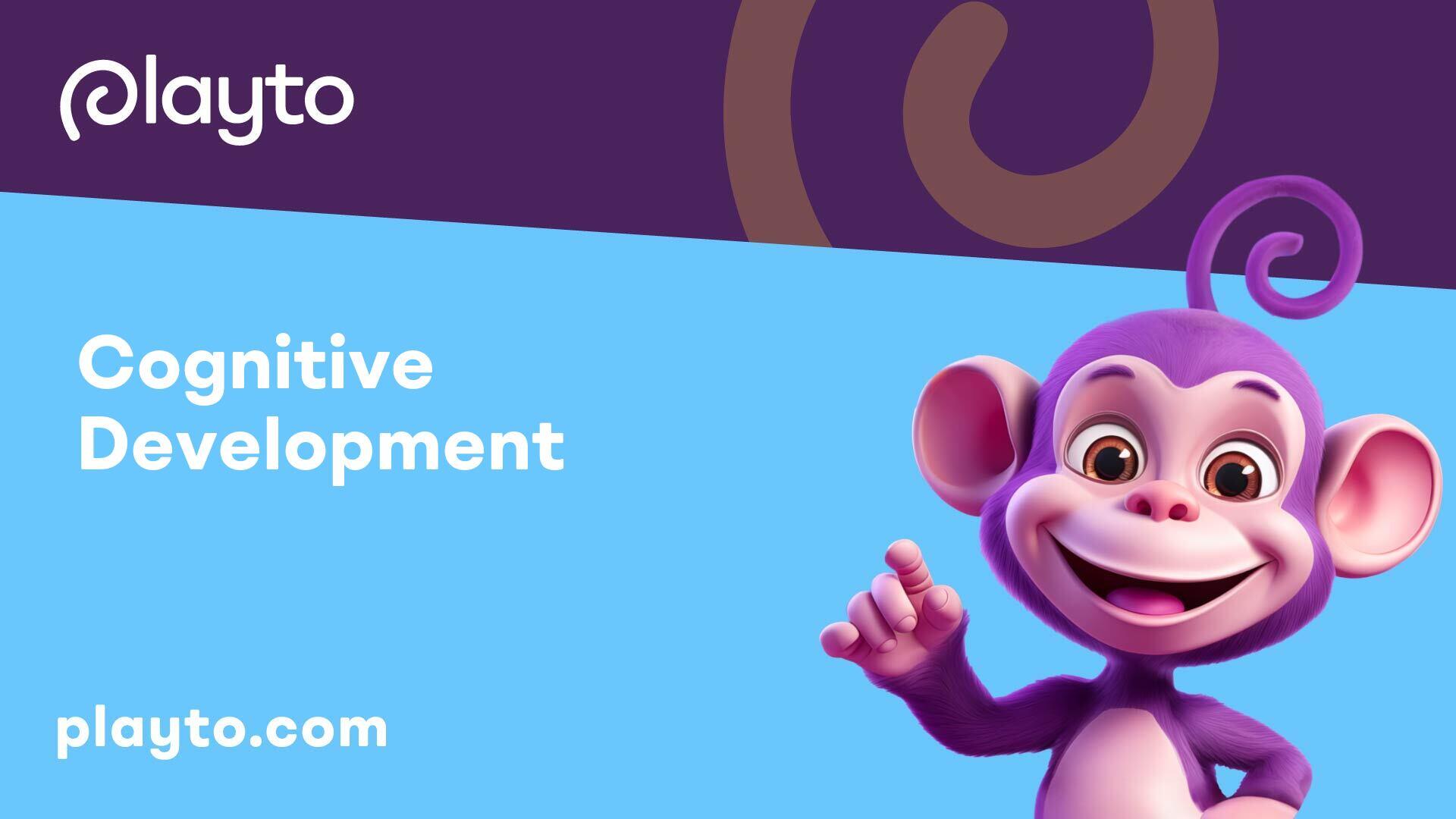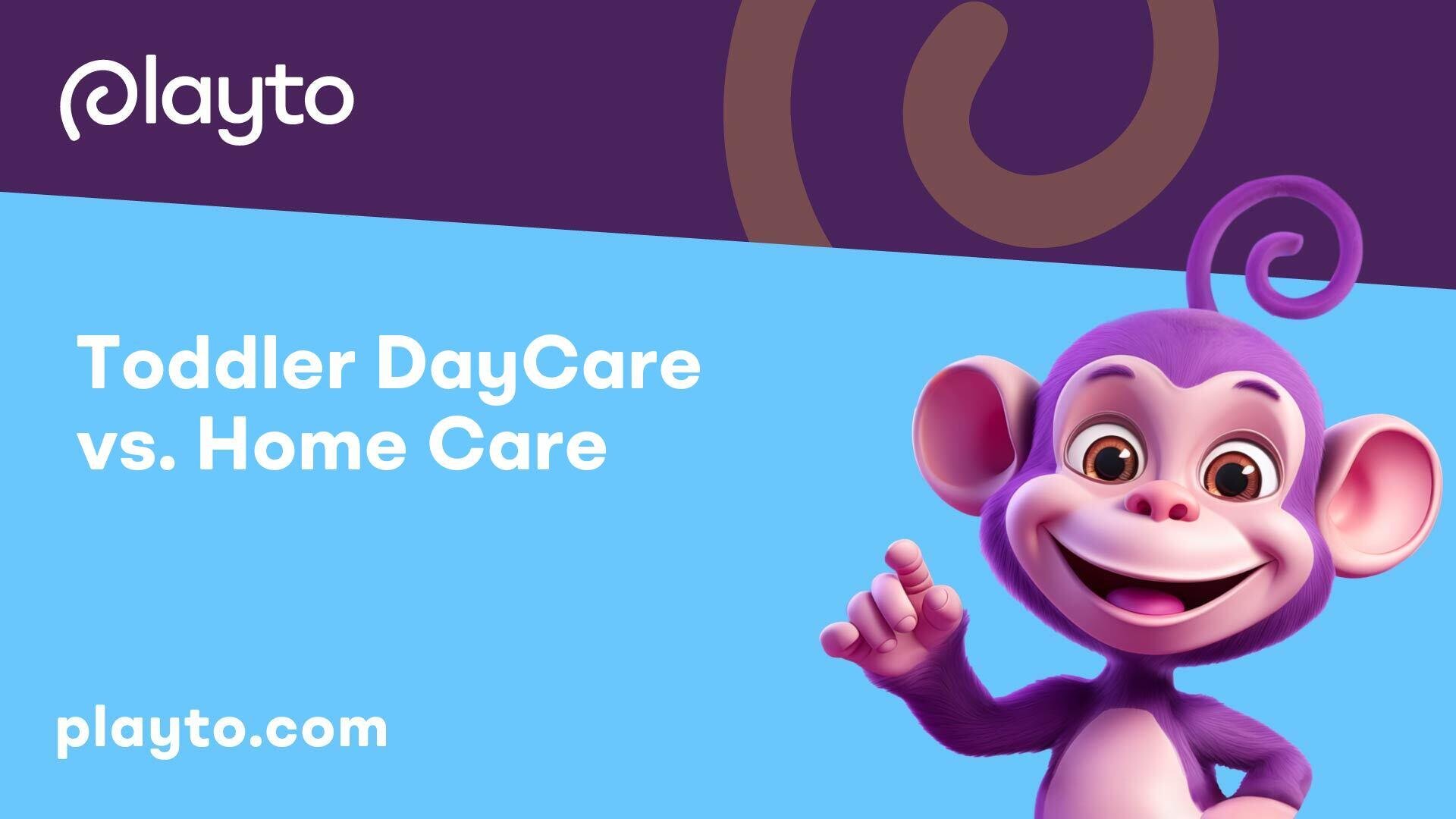
Childcare Settings Overview
When it comes to childcare options for toddlers aged 1-2 years, parents in New York often consider daycare centers and home daycare providers. Understanding the differences and benefits of each setting is essential for making an informed decision about the care of their little ones.
Daycare Centers
Daycare centers are typically located in commercial buildings and are equipped with several classrooms tailored to different age groups, including infants, toddlers, and preschoolers. These centers are commonly operated by private companies, churches, community centers, and schools [1].
In daycare centers, children are often separated into age-appropriate groups and follow a structured schedule in a school-like environment. This setting offers a variety of benefits, including preparation for kindergarten and ample socialization opportunities. The structured curriculum in daycare centers can foster cognitive development, language skills, emotional intelligence, and social skills in toddlers.
For more information on the milestones toddlers can achieve in daycare, check out our article on toddler milestones in daycare.
Home Daycare Providers
Home daycare providers offer a more intimate setting, where a childcare provider watches over a small group of children in their own home, condo, or apartment. In some states, home daycare providers are required to be licensed, while in others, licensing is not mandatory [1].
Family child care providers can offer both low and high-quality care, depending on the individual provider. The decision between home daycare and center-based care often hinges on factors such as the child's age, the family's budget, daily schedule, and the parents' priorities for their child's care and education.
Home daycare environments can provide a more personalized approach to childcare, with potentially greater flexibility in terms of schedules and activities. This setting may appeal to parents seeking a homely atmosphere for their child's early years, with a caregiver who can offer more one-on-one attention.
To explore more about the costs involved in toddler daycare, visit our article on understanding toddler daycare costs. Whether opting for daycare centers or home daycare providers, parents should evaluate the pros and cons of each option based on their family's unique circumstances and priorities.

Social Development
When it comes to the social development of toddlers, the choice between daycare and home care can significantly impact their social skills and interactions with peers. Let's explore the differences in social skills development in daycare settings versus home care options.
Social Skills in Daycare
Daycare centers provide an environment where toddlers have ample opportunities to develop essential social skills. Interacting with peers of similar age groups in a structured setting at daycare encourages children to learn valuable social behaviors such as sharing, taking turns, conflict resolution, and effective communication.
Through organized group activities, playtime, and supervised interactions, toddlers in daycare learn how to navigate social situations, build friendships, and develop empathy. High-quality daycare centers, equipped with well-trained staff and good facilities, play a pivotal role in fostering positive social outcomes that can benefit children's socialization skills and academic performance in the future [3].
Social Skills in Home Care
In contrast to daycare, home care settings, including care provided by family members or individual caregivers, may offer a more intimate environment for toddlers. While home care can provide a sense of security and familiarity, it may not always offer the same level of socialization opportunities as daycare centers.
Research suggests that children who attend center-based daycare at an early age demonstrate higher sociability in adulthood compared to those who receive home care [4]. Exposure to structured daycare environments from a young age can help toddlers develop stronger social skills, adaptability, and independence, which are essential for their future interactions with peers and in educational settings.
It's essential for parents to consider the social development aspect when choosing between daycare and home care for their toddlers. While home care may offer individual attention and a familiar environment, daycare settings can provide a rich social environment that nurtures crucial social skills and prepares toddlers for future social interactions and learning experiences. For more information on how daycare influences toddler development, explore our article on toddler milestones in daycare.

Cognitive Development
When it comes to the cognitive development of toddlers, both daycare and home care play significant roles in shaping their growing minds. Understanding the cognitive benefits of daycare versus home care is essential for parents making decisions about their child's early education and development.
Cognitive Benefits of Daycare
High-quality daycare centers, as stated by Pepper Pot Nursery, with well-trained staff, excellent care standards, and appropriate facilities, can positively impact a child's cognitive development. These centers often offer structured curriculums, engaging activities, and exposure to a diverse learning environment. Studies have shown that children in quality daycare programs tend to perform better academically in later years.
Childcare centers, such as daycare facilities, usually have a structured curriculum tailored to different age groups. This curriculum may focus on early literacy, numeracy skills, problem-solving, and social interaction. The exposure to a variety of learning experiences and interactions with peers can stimulate cognitive development and enhance a child's ability to think critically and solve problems effectively.
Cognitive Benefits of Home Care
Home care for toddlers can also provide significant cognitive benefits when provided in a nurturing and stimulating environment. Despite the setting, the quality of care plays a crucial role in the cognitive outcomes of children, as highlighted by Pepper Pot Nursery.
For children receiving home care, the primary caregiver plays a vital role in fostering cognitive development through play, conversation, and educational activities. Interaction with a caring and attentive adult can promote language development, cognitive skills, and emotional well-being. Home care settings can offer one-on-one attention, allowing for personalized learning experiences tailored to the child's individual needs.
Both daycare and home care environments can contribute to a toddler's cognitive development. Parents should consider the individual needs and preferences of their child when choosing between daycare and home care options. Engaging with toddler milestones in daycare and understanding the toddler daycare and early literacy programs available can help parents make informed decisions that support their child's cognitive growth and development.
Emotional Well-Being
Exploring the emotional aspects of childcare, the emotional well-being of toddlers is a significant factor that differs between daycare settings and home care. Emotional connection in daycare and emotional bonding in home care play crucial roles in shaping a child's development and sense of security.
Emotional Connection in Daycare
In daycare settings, toddlers have the opportunity to form emotional connections with their caregivers and peers. Childcare centers typically have a structured environment where children can interact with a larger group of children and caregivers. This setting fosters the development of social skills, resilience, and independence as toddlers navigate various social interactions.
The emotional connection forged in daycare can contribute to a child's sense of belonging and security outside the home environment. Interacting with different caregivers and peers can help toddlers learn empathy, patience, and cooperation, forming the foundation for healthy emotional development.
For more insights on how daycare impacts emotional well-being and social development, check our article on toddler milestones in daycare.
Emotional Bonding in Home Care
On the other hand, home care provides toddlers with the opportunity to establish strong emotional bonds with their primary caregiver, typically a parent or a family member. Stay-at-home parenting allows for consistent one-on-one interaction, creating a nurturing environment that promotes a deep emotional connection between the child and caregiver.
The intimate setting of home care enables toddlers to feel secure, loved, and understood, enhancing their emotional well-being and sense of attachment. The strong parent-child bond cultivated in home care can have long-lasting positive effects on a child's emotional intelligence and overall development.
To explore more about the impacts of daycare versus stay-at-home care on emotional and social development, refer to Pepper Pot Nursery.
In conclusion, both daycare and home care offer unique emotional experiences for toddlers. While daycare emphasizes social interactions and independence, home care focuses on individualized attention and nurturing relationships. Understanding the emotional dynamics in each childcare setting is essential for parents in making informed decisions about their child's well-being and development.
Cost Comparison
When considering child care options for toddlers, one crucial factor that parents in New York weigh is the financial impact of toddler daycare vs. home care. Understanding the costs associated with daycare centers and home care providers plays a significant role in decision-making. Let's delve into the financial comparison between daycare and home care for toddlers.
Financial Impact of Daycare
Child care costs have become a substantial financial burden for many families, with a significant portion of household income allocated towards child care expenses. According to Care.com, respondents spent an average of 24% of their household income on child care in 2024, significantly higher than the recommended 7% deemed affordable by the U.S. Department of Health and Human Services. This financial strain is evident, with 35% of parents dipping into their savings to cover child care expenses, leading to increased financial stress and impacting the broader economy.
Financial Impact of Home Care
For parents opting for home care for their toddlers, the financial implications can vary compared to daycare centers. Home care providers may offer more flexible pricing structures and personalized care options, potentially leading to a more cost-effective child care solution for some families. However, it's essential for parents to consider the trade-offs, such as the level of supervision, social interaction, and early education that daycare centers often provide.
The choice between daycare centers and home care ultimately depends on various factors, including budget, parental preferences, and the specific needs of the child. By understanding the financial aspects of both options, parents can make informed decisions that align with their family's financial goals and child care requirements. For more information on the impact of child care costs on families, visit Care.com.
Parental Considerations
When it comes to choosing between toddler daycare and home care for your little one, parents should carefully weigh the pros and cons of each option. Both daycare centers and home care providers offer unique benefits and considerations that can impact your child's development and well-being.
Pros and Cons of Daycare
Pros of Daycare:
Cons of Daycare:
For further insights into daycare benefits and strategies for the involvement of parents, explore our article on toddler daycare and early literacy.
Pros and Cons of Home Care
Pros of Home Care:
Cons of Home Care:
For more information on how daycare centers and home care providers manage different aspects of childcare, consider reading about building confidence in toddlers at daycare.
Ultimately, the decision between daycare and home care depends on various factors including your child's temperament, your family's schedule and budget, and your preferences regarding early childhood education. By carefully evaluating the pros and cons of each option, parents can make an informed choice that best meets the needs of their child and family.
References
[2]:
[3]:
[4]:
